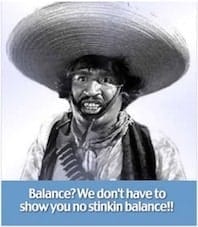Despite the Western empire’s banner of democracy in China, communism is working well in its society. The article discusses how China’s socioeconomic and geopolitical advances since 1949 can be attributed to its unique version of democracy.
ALL CHINA REVIEW | October 17, 2016
In the mid-1930s, China was being rent asunder by four competing sides. One was the communist Red Army, headed by Mao Zedong. Another group was the Japanese fascists and their Imperial Army. A third was the Guomindang Nationalists, abbreviated “KMT” in English and ruled by Chiang Kai-Shek. The last group was all of the Western colonialists – imperialists of course, who flattered themselves with the lofty label, “Great Powers”.
Things were not going as planned for the Western empire. They were backing, hell or high water, Chiang Kai-Shek (who love to be called “Generalissimo”, but whom American officials mockingly called “Peanut” behind his back) to become the eventual leader of postwar China. Their plan was to install Chiang as the puppet head of postwar China, in the mold of Cuba’s dictator Fulgencio Batista, under the usual, phony banner of “Western democracy”. It was looking more and more desperate with each passing day. The Generalissimo led his forces much like Abraham Lincoln’s General George McClellan, mostly sitting in the barracks and retreating when confronted by the enemy. When Peanut did fight, it was to try to destroy Mao and the Red Army, instead of ridding China of the much despised Japanese fascists. Lincoln eventually replaced McClellan with General Ambrose Burnside. Western colonialists could see no other option to Chiang, since Mao was Public Enemy Number One, as the most feared “commie”.
But news from China’s communist strongholds was getting too much to ignore. For months, Zhou Enlai, who was post-liberation, the Communist Party of China’s (CPC) Premier and foreign policy maven, had been telling the Americans that the Red Army would fight under their generalship, alongside the KMT, to defeat the Japanese. Generalissimo adamantly refused to cooperate with any communists, even though it was the right decision for China’s best interests. Furthermore, the Reds were winning the war against both the Japanese and Chiang’s listless gang, while reports of happy, healthy, productive and motivated communist citizens were turning into a barrage. This, compared to the KMT’s press-ganged troops, who were dying in their tattered shoes from starvation, ill-health and neglect, thanks to their very own corrupt generals and officers in the fields.
Unable to come to terms with their blind ideology, FDR, Washington and the popular press simply could not bring themselves to say “communists”, so Mao and Co. were dubbed “the so-called communists”.
US President Franklin D. Roosevelt and Co. finally relented in 1937, so a small contingent of officers and journalists were sent to see for itself. Edgar Snow was there, whose book, Red Star over China became an international bestseller that year. Much to their shock, it was all true. Everywhere the communists took control, opium addiction, gambling, organised crime, prostitution, feet binding, child slavery, homelessness, illiteracy and starvation were eradicated. Red Army soldiers and citizens were smiling, industrious, positive, well-fed and committed to the cause. It was clearly not propaganda and all manifestly real. From that point on, the Americans privately understood that the very corrupt, dissipated Generalissimo and his KMT did not stand a chance against Mao and formidable Reds. But, being a ferocious commie hater, fascist Peanut was the only horse Western colonialists had to ride.
The West was caught in a philosophical, transitive loop. Mao and the Reds are communist, communism is evil, therefore everything that Mao and the Reds do must be bad. And that was the rub, this massive cognitive dissonance: they’re communists, so how can it be working so well for them?
Unable to come to terms with their blind ideology, FDR, Washington and the popular press simply could not bring themselves to say “communists”, so Mao and Co. were dubbed “the so-called communists”. Joseph Stalin helped shape this legerdemain of the tongue, by telling wartime British Prime Minister Winston Churchill and Roosevelt that the Chinese were “radishes”, red on the outside, but white below the surface – not realcommunists. Thus, the square peg of CPC reality was crammed into the round hole of Western denial. At least the occidental imperialists got one thing right. Not only did the CPC sweep Japan and the Western colonialists out of New China, but it chased the KMT all the way to Taiwan.
This same kind of rigid, anticommunist ideology is still going strong in the West, as it tries, mostly badly and incorrectly, to understand the Chinese people’s sociocultural evolution and Baba Beijing’s (the leadership) politico-economic management of the country. To Western mass media, politicians, movers and shakers, China is still “so-called communist”. It must be capitalist, to be doing so well, right? Just as FDR and his generation were blinded by propaganda, today’s Eurangloland and much of the rest of the world are still brainwashed. Evidence is beating Westerners over the head, if they could just take their zealous blinkers off.
Let’s start with China’s national People’s Constitution and Deng Xiaoping. Anticommunists love to fawn over Deng, like he was some kind of crusading capitalist guru. Yet, it was he who presided over the most recent rewriting of the national constitution, in 1982.¹ China’s constitution is a powerful rebuke of capitalism and everything the West stands for.
The Chinese constitution proudly splashes the term “communism” or “communist” fifteen times, “socialism” and “socialist” a whopping 123 times. Dialectical terms like “class”, “struggle”, “mass”, “independence”, “labour”, “worker/working”, “peasant”, “exploitation”, “capitalism”, “ownership”, “proletariat”, “collective”, “cooperate”, “private”, “fight”, “struggle”, (democratic) “dictatorship”, “power” and “feudal” are spelled out a total of 265 times. “Marxism-Leninism and Mao Zedong Thought” are cited ten times and “revolution” twelve times.
Big government, central planning vocabulary, such as “safeguard”, “protect”, “lead”, “reform”, “rural”, “urban”, “production”, “plan”, “economy”, “system”, “administration”, “rules”, “regulations”, “institution”, “enterprise”, “science”, “technology”, “modern”, “organisation”, “manage”, “progress”, “agriculture”, “farm”, “land”, “industry”, “resources”, “education”, “central” and “develop” get cited a mind boggling 703 times.
The importance of the central government guiding the people to what is now being dubbed the Chinese Dream, is expressed by the words “state” and “government” being used 292 times.
Defiant words aimed at standing up to and defeating the West, like “hegemony”, “imperialism”, “colonialism”, “combat”, “defend”, “army”, “military”, “security”, “aggression”, “fight”, “sabotage” and “provocation” are flung like weapons a total of 85 times.
China’s constitution is a powerful rebuke of capitalism and everything the West stands for.
Any doubts about who is the beneficiary of China’s constitution are dispelled by “public” being used 143 times and “people”, a mind blowing 392 times, Western elitism be damned.
The preamble succinctly encompasses China’s 5,000-year civilisation and then highlights its century of humiliation, starting with the imperial West’s organised crime drug cartel, in 1840. One early section of the preamble proudly shouts,
“After the founding of the People’s Republic, China gradually achieved its transition from a New-Democratic to a socialist society. The socialist transformation of the private ownership of the means of production has been completed, the system of exploitation of man by man abolished and the socialist system established. The people’s democratic dictatorship led by the working class and based on the alliance of workers and peasants, which is in essence the dictatorship of the proletariat, has been consolidated and developed. The Chinese people and the Chinese People’s Liberation Army have defeated imperialist and hegemonist aggression, sabotage and armed provocations and have thereby safeguarded China’s national independence and security and strengthened its national defence.”
The preamble later closes with this giant martial art kick to the West’s collective face,
“China consistently opposes imperialism, hegemony and colonialism, works to strengthen unity with the people of other countries, supports the oppressed nations and the developing countries in their just struggle to win and preserve national independence and develop their national economies, and strives to safeguard world peace and promote the cause of human progress.”
Hasn’t sunk in yet? Care to read the CPC’s Constitution?² Together, it and the People’s Constitution are the backbone, the bedrock of Chinese governance and society, and Baba Beijing’s ceaseless pursuit to maintain the Heavenly Mandate.
Property market bubbles? What property? Private property, for sure, but it’s not real property. All real estate is 100% owned by the people of China. There is not one square metre of private land in the People’s Republic. You can pay for up to a 70-year usage lease on a piece of land and develop it, but no one can buy the dirt.
Private enterprise? It is thriving for sure, but is heavily concentrated in small and medium sized enterprises (SMEs), that complement and do not seriously compete with the state sectors of the economy. The private sector is especially the many millions of mom and pop and solo businesses that blanket the country.
Free markets? There is not one private bank in China. They are all people powered. The world’s largest bank, Industrial and Commercial Bank of China (ICBC) is state owned of course, as well as three other global Top Ten banks: #1 (ICBC), #5 China Construction Bank (CCB), #9 Bank of China (BOC) and #10 Agricultural Bank of China (ABC).³ Ditto all insurance companies, the Shanghai and Shenzhen stock and precious metals markets. Same goes for all major media outlets, especially television, radio and print media, although everyone has heard about Beijing being the new “Hollywood of the East”, which is mostly private sector.
China’s socioeconomic and geopolitical advances, since 1949, can be directly attributed to its anti-imperial, communist system of governance.
Unfettered capitalism? Get outta here! Almost all major economic sectors in China are dominated by state-owned enterprises (SOEs). Everything from airlines/avionics to aerospace to chemical industries, from construction to maritime shipping to mining, from nuclear energy to petroleum to railways, from steel to telecommunications to utilities, over 100 key sectors have a huge, people-powered footprint. Many are some of the world’s biggest corporations. Not only that, but they are, like the aforementioned state banks, very profitable and well-run, contrary to relentless Western propaganda.4
Privatisation? You have to look beyond the deceptive headlines. Baba Beijing caps the sale of SOE stock to the public, at 30%. Furthermore, there are strict controls on making sure someone doesn’t try to control what’s offered. The ownership of the shares has to be spread out. Most of these stocks are owned by Chinese citizens (A shares), but some are on offer to foreigners (B shares). Interestingly, more and more Chinese companies, including SOEs, are doing IPOs in Western stock markets, as part of their 30%.
Reforms? Ha-ha-ha, the joke’s on you! Baba Beijing will never sell off the people’s SOEs. It knows that the citizens’ social harmony and economic stability are rooted in its ability to macro-manage and long term (Five-Year) plan the country’s direction, via the 100% ownership of all the real estate (Marxism’s controlling the means of production), as well as the key industries and sectors. The CPC will continue to create wealth, under the rubric of socialism with Chinese characteristics, by borrowing some capitalist trappings. But it is only transitional. Deng Xiaoping said it many times and it continues going unheard in the West, that the goal is to follow the Marxist economic path to a wealthy communist society.
But that’s not fair, you say, the playing field is not level. Well too bad, Western capitalists. China’s socioeconomic and geopolitical advances, since 1949, can be directly attributed to its anti-imperial, communist system of governance. You can see what you want to see in the Middle Kingdom, project your sacred (some would say mythological) Western ideals onto Baba Beijing and the Chinese people, but it’s still not “so-called communism”. It’s communism period. Shhh…Listen carefully and you can hear the spirit of Deng Xiaoping whispering it in your ear.
Featured image: National People’s Congress 12th full session 2012 Photo Courtesy: CPC
References
1. http://www.npc.gov.cn/englishnpc/Constitution/node_2824.htm
2. http://english.cpc.people.com.cn/206972/206981/8188065.html
3. http://incomefile.com/richest/top-10-richest-banks-world/
4. http://beta.fortune.com/global500/
 Jeff J. Brown—TGP’s Beijing correspondent— is the author of 44 Days (2013), Reflections in Sinoland – Musings and Anecdotes from the Belly of the New Century Beast (summer 2015), and Doctor WriteRead’s Treasure Trove to Great English (2015). He is currently writing an historical fiction, Red Letters – The Diaries of Xi Jinping, due out in 2016. In addition, a new anthology on China, China Rising, Capitalist Roads, Socialist Destinations, is also scheduled for publication this summer. Jeff is commissioned to write monthly articles for The Saker and The Greanville Post, touching on all things China, and the international political & cultural scene
Jeff J. Brown—TGP’s Beijing correspondent— is the author of 44 Days (2013), Reflections in Sinoland – Musings and Anecdotes from the Belly of the New Century Beast (summer 2015), and Doctor WriteRead’s Treasure Trove to Great English (2015). He is currently writing an historical fiction, Red Letters – The Diaries of Xi Jinping, due out in 2016. In addition, a new anthology on China, China Rising, Capitalist Roads, Socialist Destinations, is also scheduled for publication this summer. Jeff is commissioned to write monthly articles for The Saker and The Greanville Post, touching on all things China, and the international political & cultural scene
In China, he has been a speaker at TEDx, the Bookworm Literary Festival, the Capital M Literary Festival, the Hutong, as well as being featured in an 18-part series of interviews on Radio Beijing AM774, with former BBC journalist, Bruce Connolly. He has guest lectured at international schools in Beijing and Tianjin.
Jeff grew up in the heartland of the United States, Oklahoma, and graduated from Oklahoma State University. He went to Brazil while in graduate school at Purdue University, to seek his fortune, which whet his appetite for traveling the globe. This helped inspire him to be a Peace Corps Volunteer in Tunisia in 1980 and he lived and worked in Africa, the Middle East, China and Europe for the next 21 years. All the while, he mastered Portuguese, Arabic, French and Mandarin, while traveling to over 85 countries. He then returned to America for nine years, whereupon he moved back to China in 2010. He currently lives in Beijing with his wife, where he writes, while being a school teacher in an international school. Jeff is a dual national French-American.
"China Rising, Capitalist Roads, Socialist Destinations" by Jeff J. Brown on Ganxy
China Rising Radio Sinoland Outlets
And Jeff J Brown’s social media outlets:






About time someone started describing China the way it is, and not the way the Western media want us to perceive it. Thanks!
Godfree Roberts is so right. Our vision’s blurred by vested western media.